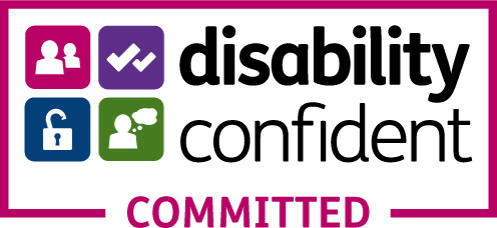How to spot a job scam
67% of us are now going online to look for employment, according to SAFERJobs – an organisation set up by the Metropolitan Police to help combat employment fraud. However, the convenience of applying for jobs online unfortunately brings with it the potential for fraudsters to strike. Today we’re talking about how to spot a job scam.
What is a job scam?
Jobs scams are false job adverts that target jobseekers with the aim of stealing personal information or money. The 18 – 24 age bracket is currently the most susceptible to these scams, with over 300,000 students targeted in 2016 (half of whom lost cash).
Why are jobs scams so common?
Job scamming is particularly insidious because when desperate or excited for a new opportunity, potential applicants can be overly hopeful or optimistic that a job is real, which fraudsters rely on. Jobseekers are often eager to believe the perfect job is out there for them – even if it sounds unlikely or unrealistic.
According to SAFERJobs, 98% of respondents said that they would apply despite feeling the job may not be legitimate.
Types of job scams
Scams are becoming extremely sophisticated, with fraudsters upping their game, making it really difficult to know what’s genuine or fake.
The most obvious job scams are the fake job adverts that are designed to entice people to apply in order to acquire your personal information. The details most often stolen are national insurance details, bank details, date of birth and address, which make stealing your identity significantly easier. Fraudsters can also attempt to steal your identity as part of bogus pre-employment checks where they request your details.
When job seeking, fraudsters sometimes ask for money up front as part of an advance fee scam for things like CV writing, admin charges, carrying out DBS checks, and even claiming to be travel agents when people are looking to work abroad.
Premium rate phone interview scams are also a growing concern. Scammers send texts or missed call messages to victims asking them to call premium rate numbers for an initial phone interview. They will invariably be put on hold for lengthy periods, and costs to unsuspecting victims can total hundreds of pounds.
What should I look out for?
- The obvious red flag in job adverts is poor spelling and grammar in job adverts with a disjointed or unprofessional writing style and dated or inaccurate graphics.
- If you didn’t contact them; they contacted you: they say they found your resume online. They either offer you a job right away or say they want to interview you.
- A common warning sign is if a personal email address is supplied as the contact for more information, rather than to a shared ‘info@’ or ‘hrsupport@’ e-mail inbox. Be sure to check this before making contact.
- A congratulatory e-mail that commends you on ‘getting the job,’ before you have met the employer.
- Scammers can be quite sophisticated and use fake company domain names to demonstrate what appears to be a legitimate website, so always check out the company thoroughly.
- Most job scams are email-based, and rarely involve meeting recruiters face-to-face. You can be asked to click a link for more information that can lead to viruses that may take your information and damage your devices.
- If you haven’t registered with a recruitment agency and receive personalised job offers, it’s probably a scam.
- Scammers sometimes use Linkedin to clone themselves as headhunters or recruitment agencies. They access personal profiles, career histories, and CVs to tailor.
- Job adverts urging you to apply immediately and not asking for any previous experience are usually just too good to be true. Typically they are described as ‘your dream job, no experience needed.’
Opportunists are tailoring scams to potential victims’ backgrounds before targeting them with convincing lies, attempting to collect personal information and con them out of money, and still without the new job you were looking for.
What to do if you suspect you are being scammed
If you are even slightly suspicious about a recruiter, have been targeted or treated unfairly about a job, or are the victim of a scam, you can report it to SAFERjobs, a website dedicated to identifying and stopping job scammers with the public’s help. It will share details of potential criminality or breaches of regulation with its partners, such as the police, and the Department for Work and Pensions.
Our Awards and Accreditations













 03333 235 900
03333 235 900 Login / Register
Login / Register
